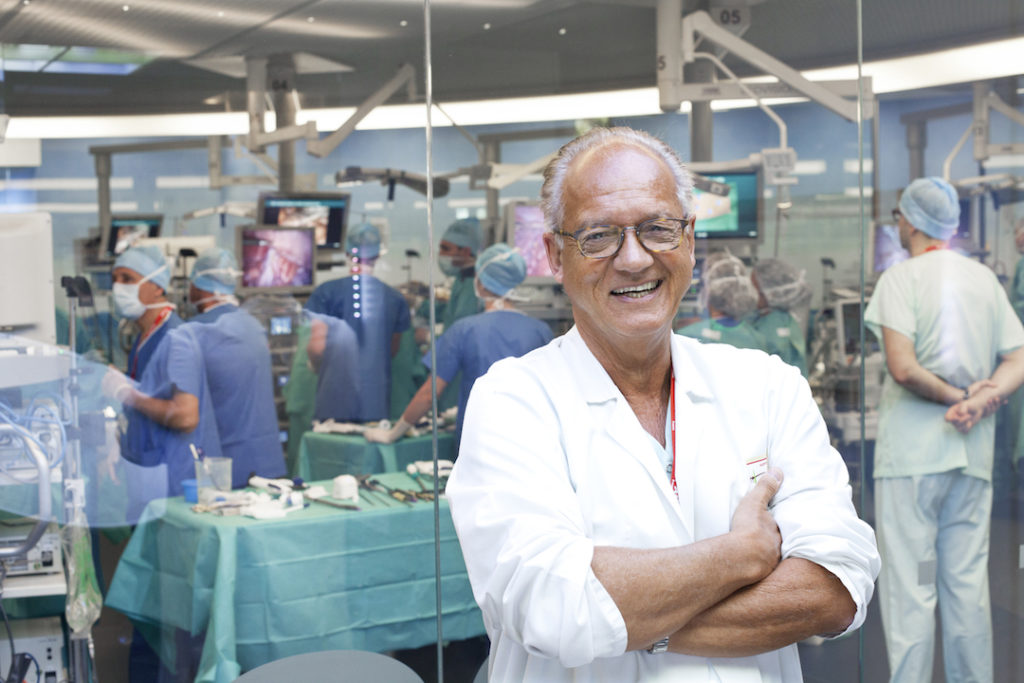Interview with Professor Jacques Marescaux
October 1, 2018

- Why and when did you decide to embrace laparoscopy?
In 1988, I had the chance to attend a joint presentation given by Philippe Mouret and Jacques Perissat regarding the first laparoscopic cholecystectomies. The impact it had on me was immediate. When I came back to Strasbourg, it did not take long before I obtained two laparoscopic units.
As a result, our teaching hospital was one of the first facilities to develop this technique.
- Who do you consider as your mentor and why?
I had a mentor, or rather a “hero”, Richard Satava. He was the person who highlighted the development of artificial intelligence in medicine during a conference he gave in Germany in 1991.
He spoke of the future power of the Internet and surgical robotics, virtual and augmented reality, which are concepts that did not exist before. I understood less than 20% of his lecture. I came back to Strasbourg, and after a discussion with our partners, we decided to create the IRCAD Institute, the aim of which was to make the concepts of Richard Satava a reality.
- In laparoscopy of the future, in your opinion, will it be more important to see what you see better or be able to see what you cannot see?
The answer is twofold:
-
- What is already visible will become even more clearly visible thanks to the evolution of cameras (4K, and then 8K, 3D, etc.)
- And naturally, it is crucial to be able to see what cannot be seen with the naked eye. The so-called “augmented vision” is undoubtedly the most important development for the laparoscopic surgeon whether it is with fluorescence, augmented reality or any other means. The objective is to achieve a more targeted surgery preserving as much healthy tissue as possible and preventing complications with a better intra-operative understanding of anatomical details.
- Artificial intelligence will have a role in future medicine, why?
No need to be an overseer to assert that artificial intelligence will play a major and decisive role in medicine and in surgery in particular: not only preoperative strategy as can be demonstrated by “Watson”, but also the concept of augmented surgery where artificial intelligence will allow for an augmented vision through the development of 3D reconstruction of medical images, with increasingly precise maneuvers during robotic surgery and certainly through a real-time capacity to analyze situations, making it possible to prevent any severe complications and enhance intra-operative strategies.
- For a surgeon, ethical commitment to patient care is defined as a kind of religious/romantic foundation or just impeccable professional work?
Let me quote Jean-Paul Cachera as an example. “It’s my extreme pleasure to enter a human body: each time it is a moment of respect and reverence and reflection, as if entering a temple. Most importantly, be harmless, respect what still looks healthy, be discreet in this dissection inside a fellow counterpart; and make things right again neatly before leaving as I have no right on any human body, just duties”. The answer was made more complex by the fact that the surgeon must constantly innovate and no answer is provided about “ethical commitment”. You can just listen to the splendid conclusion in Peter Angelos’s lecture regarding “Ethics and Innovation”: Are we honest with our patients? This isn’t really a conclusion though, is it?
Written By: The Hawk







